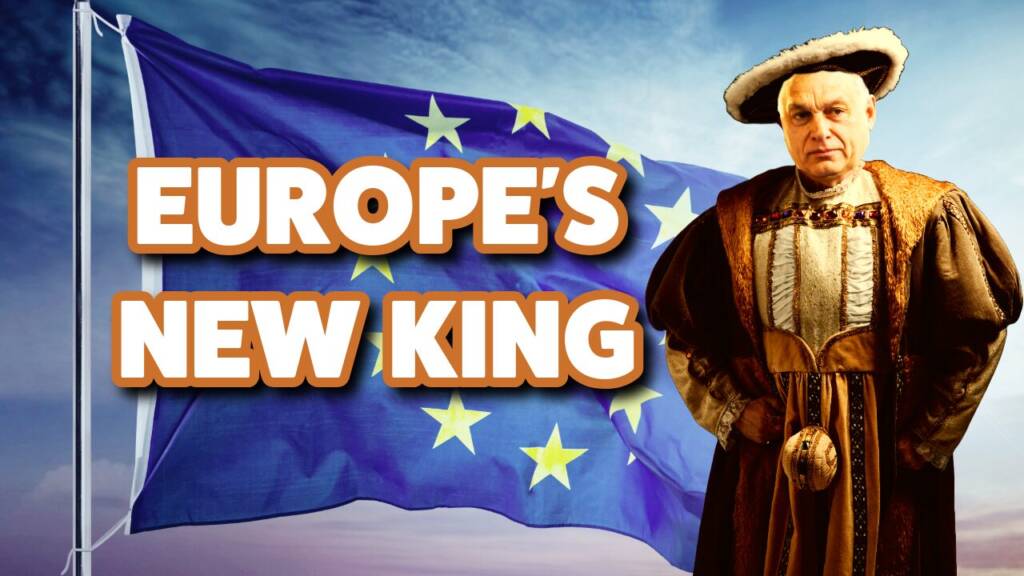In the upcoming European Parliamentary elections, Orbán hopes a Right-populist wave will allow him and his ideological kin to seize top positions and institutions. With Hungary set to assume the rotating presidency of the European Council in July, Orbán’s influence could be unparalleled.
But this conflict is not merely about power; it is profoundly ideological. Orbán’s liberal critics portray him as a threat to fundamental “European values,” yet these “values” remain ill-defined. Typically, they encompass liberal democracy, free markets, and neoliberal identity politics, with a touch of secular evangelism. This often appears as imperialism with a human face.
Orbán, however, sees himself as the true guardian of European values, accusing his critics of endangering them. Thus, the battle is over the EU’s core principles and the opaque alternatives Orbán proposes.
Rhetorically, Orbán’s vision of a “Europe of nations” grounded in Christian tradition clashes with the progressive, secular Europe based on human rights and equality. However, the very pathologies Orbán’s opponents ascribe to him—nationalism, clientelism, authoritarianism—are as European as Eurovision. The vulnerability of “EU values” to such attacks reveals a certain vacuousness at the heart of the European project, making it an empty vessel ripe for hijacking—a stealth takeover already in motion.
In 2022, the European television network Euronews was purchased by an obscure Portuguese investment fund linked to the Orbán government. Hungary’s sovereign wealth fund, Széchenyi Funds, invested €45 million in the purchase, and a communications company owned by an Orbán associate added €12.5 million. The aim was clear: internal Széchenyi Funds documents described Euronews as “the seventh most influential brand on EU politics,” purchased to mitigate Left-wing bias in journalism.
Euronews has since relocated its headquarters from Lyon to Brussels, enhancing its soft power presence. In 2021, the Hungarian government acquired an 18th-century mansion in Brussels, dubbed “Hungary House.” Additionally, the Mathias Corvinus Collegium (MCC), a conservative think tank, opened a Brussels branch in 2022 to promote Orbánist thought. The Hungarian government also funds the European Conservative, an English-language publication providing conservative commentary on European affairs. Together, these Orbán-backed institutions underscore the extent of his Brussels ambitions.
Orbán views the European conflict as a battle between sovereigntists (or nationalists) and federalists. Federalists aim to create a centralized “United States of Europe,” undermining nation-states. Sovereigntists, like Orbán, advocate for a loosely connected EU, uniting European nations under shared Christianity. Federalists see sovereigntists as regressive nationalists, akin to the fascists of the 20th century.
The divide between sovereigntists and federalists in the European Union has widened significantly, but Viktor Orbán argues that this tension was once crucial to the EU’s functionality. Historically, he asserts, the balance prevented both the collapse of cohesion and the rise of an oppressive empire. Orbán contends that the federalists have transformed from “Catholic universalists,” who supported nation states within a united Christendom, into “progressive liberals” akin to communists, posing a real threat to freedom. This ironic conflation of liberal European values with communism overlooks the post-war European effort to combat socialism by championing these very values.
Hungary’s friction with the EU’s federalists intensified after Fidesz’s rise to power in 2010. Before this, Hungary’s socialist technocrats cooperated well with Brussels, especially when the EU helped Hungary avoid bankruptcy in 2008 with a €25 billion rescue package and severe austerity measures. Fidesz capitalized on the discontent, campaigning against globalization, supranational institutions, and the idea of an “ever closer union.” The Brexit vote sharpened these battle lines, with Orbán noting that the British always favored nation states, leaving Central European countries to uphold the sovereigntist stance.
The 2015 migration crisis further deepened the EU rift, particularly between the Visegrad Group (Hungary, Czechia, Slovakia, and Poland) and the rest of the EU. Hungary’s border fence became a symbol of the divide in “European values”: progressive liberals saw it as a failure of European ideals, while Orbán and his allies viewed it as a defense of sovereignty and Christian civilization.
Orbán aims to exploit this disagreement ahead of the European Parliamentary elections. However, Fidesz left the center-right European People’s Party in 2021 over rule of law concerns and has not joined the two right-wing nationalist groups in the European Parliament. These groups, the European Conservatives and Reformists (ECR) and Identity and Democracy (ID), differ mainly on support for Ukraine, with ECR backing military aid and ID opposing it. Despite occasional cooperation, a merger seems unlikely due to opposition from some ECR members who criticize Hungary’s ties with Russia.
Orbán’s pro-enlargement stance complicates his position within this emerging right-wing bloc. Hungary has long advocated for the EU membership of Serbia and Bosnia and Herzegovina, partly due to Orbán’s relationships with their leaders. His call for enlargement is strategic, aiming for a larger, less integrated EU that could weaken federalist centralization.
Orbán’s vision is to create a more robust but fragmented EU, uniting sovereigntist Christians to counter federalist ambitions. This approach underscores the deep ideological battle over the EU’s future as Orbán seeks to reshape it from within.
